Share
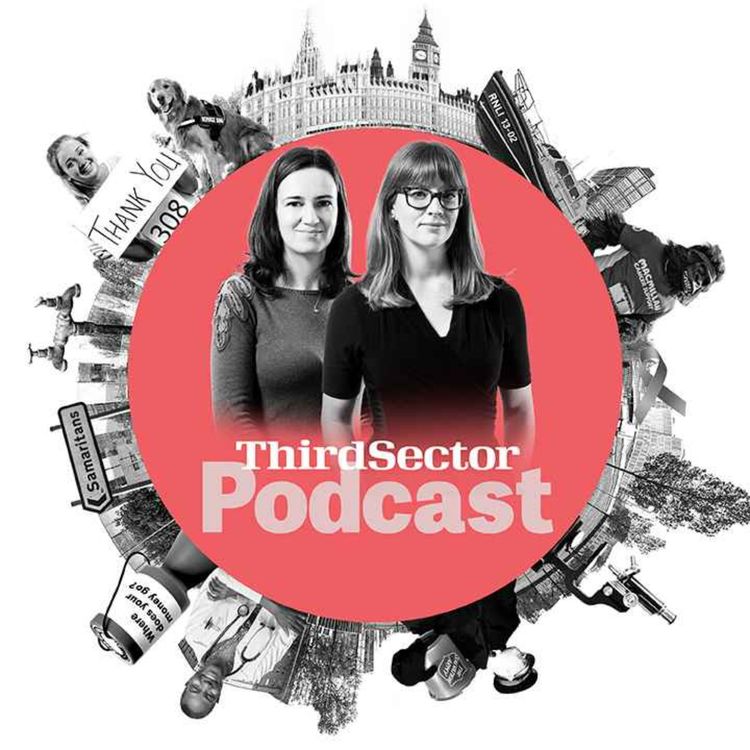
Third Sector
Funding for small charities
Lucinda and Emily are joined by Mary Rose Gunn, founder and chief executive of the small charity funder The Fore, to discuss the challenging funding environment facing small charities.
They start by listening to an account by Jane Evans, chief executive of West Norfolk Carers, about the growing difficulty of securing enough funding to keep the charity afloat.
Mary Rose explains why trusts and foundations have historically erred towards supporting specific projects rather than offering unrestricted funding to small charities.
She describes how this is shifting with the emergence of a new generation of largely self-made philanthropists and provides tips for small charities seeking to strengthen their funding applications.
Also in the episode, Debra Allcock Tyler, chief executive of the Directory of Social Change, outlines some of the common pitfalls associated with appointing corporate chairs to charity boards and provides suggestions for overcoming them.
Hear more from Jane Evans in Third Sector’s podcast documentary, The End of Charity: What is a world without charity?
Read Debra Allcock Tyler’s column: Corporate chairs – a blessing or a curse?
Do you have stories of people whose lives have been transformed for the better thanks to your charity? If so, we’d like to hear them! All it takes is a short voice message to be featured on this podcast. Email lucinda.rouse@haymarket.com for further information.
Tell us what you think of the Third Sector Podcast! Please take five minutes to let us know how we can bring you the most relevant, useful content. To fill in the survey, click here.
More episodes
View all episodes
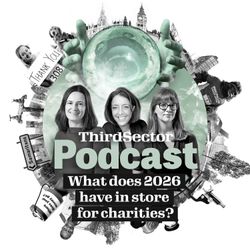
What does 2026 have in store for charities?
40:45|Lucinda Rouse and Emily Burt are joined by Kate Lee, chief executive of the National Council for Voluntary Organisations, to discuss some of the issues facing the voluntary sector in 2026.These include ensuring financial sustainability and the role of civil society in a world of uncertainty in the face of some big existential questions.Kate also shares her reasons to be optimistic, including the next generation of sector leaders coming up and a growing trend of interrogating impact data to improve organisational efficiency.Register for the free Pounds & Purpose summit here.Tell us what you think of the Third Sector Podcast! Please take five minutes to let us know how we can bring you the most relevant, useful content. To fill in the survey, click here.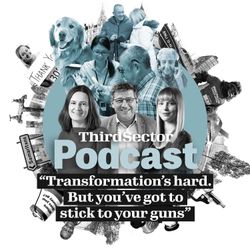
How the RNIB has navigated a restructure
18:30|Lucinda Rouse and Emily Harle discuss snippets from a recent interview Emily conducted with Matt Stringer, chief executive of the Royal National Institute of Blind People.Matt provides insight into the RNIB’s transformation programme, which concluded in April, and shares his lessons learned from a significant restructure.He reflects on the differences between charity leadership and his previous work in corporate retail and gives his reasons for leaving the organisation this month.Tell us what you think of the Third Sector Podcast! Please take five minutes to let us know how we can bring you the most relevant, useful content. To fill in the survey, click here.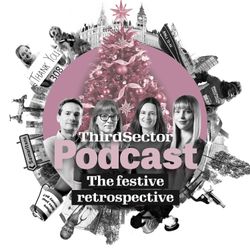
How did the sector fare in 2025?
31:13|Lucinda Rouse is joined by Emily Burt, Emily Harle and Andy Ricketts to dissect the leading stories from the voluntary sector in 2025.Lucinda delivers a speedy round-up of the year’s charity news before the four discuss their selected top stories. These include the launch of the Civil Society Covenant and leadership and governance challenges at Oxfam GB and World Vision UK.They share their nominations for the year’s strangest stories, from sabotaged locks at a Cheshire museum to the children’s charity whose future was threatened after it bought land that was open to shooting parties.The team reflects on some recurring trends over the course of the year, from the unwelcome waves of redundancies and charity closures to the effects of rising far-right activism on the sector.Tell us what you think of the Third Sector Podcast! Please take five minutes to let us know how we can bring you the most relevant, useful content. To fill in the survey, click here.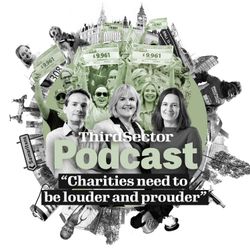
Under the bonnet of the People’s Postcode Lottery
33:32|Lucinda Rouse and Andy Ricketts are joined by Clara Govier, managing director of the People’s Postcode Lottery.Clara outlines the process for disbursing funds to charities and explains what the People’s Postcode Lottery looks for in prospective charity partners. She gives her thoughts on how funders could work together more effectively and puts forward the case for lifting the sales cap on charity lotteries.Tell us what you think of the Third Sector Podcast! Please take five minutes to let us know how we can bring you the most relevant, useful content. To fill in the survey, click here.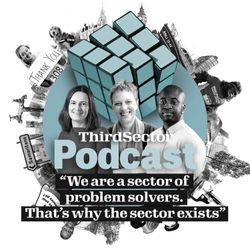
A stocktake on charity leadership concerns
30:37|Lucinda Rouse and Dami Adewale are joined by Jane Ide, chief executive of the charity leaders body Acevo, to reflect on some of the issues facing sector leaders.Jane provides an update on work relating to the Civil Society Covenant, which was published in July, saying more momentum is expected from the government in the first quarter of 2026.She warns that charity leaders should be lowering their expected time in post due to unsustainable pressures. And she observes that polarisation within organisations needs to be considered as much as the work being done externally to convene and strengthen civil society. Tell us what you think of the Third Sector Podcast! Please take five minutes to let us know how we can bring you the most relevant, useful content. To fill in the survey, click here.
What is the ‘impact economy’? And refugee charities in far-right headwinds
33:21|Lucinda Rouse, Emily Harle and Emily Burt reflect on two significant sector issues from the past month.Emily Harle shares findings from a recent roundtable meeting of leaders from refugee and migration charities, whose staff have experienced a surge in targeted hostility in recent months.And after the government launched its new Office for the Impact Economy, Lucinda asks what the phrase actually means and the part the voluntary sector will play in it. Tell us what you think of the Third Sector Podcast! Please take five minutes to let us know how we can bring you the most relevant, useful content. To fill in the survey, click here.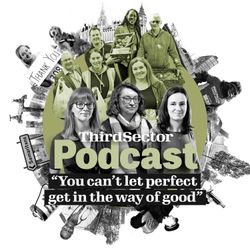
How a national charity is fostering hyperlocal connections
33:17|Lucinda Rouse and Emily Burt are joined by Vic Harper, chief executive of the food redistribution charity The Bread and Butter Thing.Vic describes how the charity has taken a holistic approach to the way it supports communities by working alongside other charities and local authorities at its food distribution hubs. She outlines the process of identifying suitable community partners and explains why a one-size-fits-all approach to communication with such a diverse assortment of stakeholders will never work.Tell us what you think of the Third Sector Podcast! Please take five minutes to let us know how we can bring you the most relevant, useful content. To fill in the survey, click here.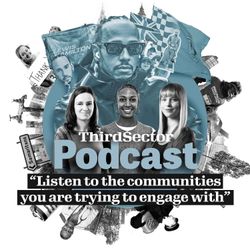
How to engage with partners in effective lobbying
25:48|Lucinda Rouse and Emily Harle are joined by Leicia Feare, associate director of communications and campaigns at the youth empowerment charity Mission 44.Leicia talks about the charity’s first campaign, Nothing Happens in Isolation, which aims to promote inclusion in schools. She describes how Mission 44 convened partners to formulate a list of recommendations that the charity’s founder, the motor racing driver Sir Lewis Hamilton, presented to the Prime Minister.She outlines the measures taken by the charity to incorporate the views and priorities of young people who have experienced exclusion from school and explains how it has avoided tokenism in the process.She reflects on the value of having a popular figurehead at the top of the organisation while acknowledging the difficulty of developing a stand-alone profile for Mission 44 when media interest is invariably focused on its central personality.Tell us what you think of the Third Sector Podcast! Please take five minutes to let us know how we can bring you the most relevant, useful content. To fill in the survey, click here.Subscribe to the Third Sector Podcast on Apple Podcasts or on Spotify.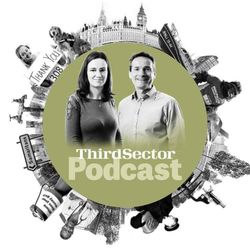
Getting project endings right
32:42|Lucinda Rouse and Andy Ricketts are joined by Ruth Hollis, chief executive of the Olympic legacy charity Spirit of 2012.Ruth reflects on the responsibility of being a funder approaching close-out as Spirit of 2012 prepares to wind up in early 2026.She acknowledges the difficulties for charities seeking to ensure the sustainability of their programmes in the absence of long-term funding and suggests ways in which grantmakers can work together to reduce the occurrence of funding cliff-edges.She stresses the importance of built-in time for reflection during the course of a programme and explains how Spirit of 2012 is taking a different approach to its final report.Tell us what you think of the Third Sector Podcast! Please take five minutes to let us know how we can bring you the most relevant, useful content. To fill in the survey, click here.